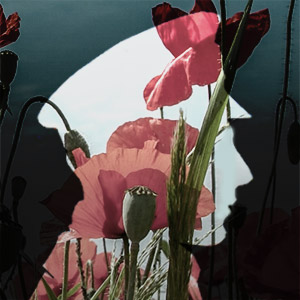
Robert Harper was born at West Wells Road, Ossett on the 1st May 1896, the elder son of journeyman printer George Harper, who was born at Hunmanby near Filey and his wife, London born widow Emily Jane Forster (formerly Furby) who had married in late 1895 in the Scarborough area.
By 1900 the family had moved to Burley, Leeds and by 1901 George and Emily Jane, her two sons from her previous marriage and her three children by George had moved to live at Waterworks Cottage, Ripon, where George was working as a printing compositor. Robert Harper was four years of age.
By 1911 the family, now with a fourth child, Jack, had moved again and were now living elsewhere in Ripon. George was working as a foreman for a letterpress printer, Robert was 14 years old and an errand boy for an ironmonger and the elder daughter, Dorothy was working as house servant in Middlesex. The nature of George’s work as a journeyman printer appears to have taken him wherever work could be found and each of his four children were born in different towns or cities.
Robert had been educated at the Ripon Wesleyan School and was later employed as Second Footman with General Sir Mervyn Buller of Aldershot. Like his father, Robert also had the touch of wanderlust about him too and in February 1914 he enlisted in the Army, joining the Rifle Brigade. After serving a week in barracks he was discharged as medically unfit.
Seven months later Great Britain declared war on Imperial Germany in response to the invasion of Belgium. Robert enlisted for a second time in April 1916, joining the Northumberland Fusiliers and from September 1916, he served with the Expeditionary Force in France and Flanders
Elsewhere (note 1) it is recorded that he transferred to the Northumberland Fusiliers from the West Yorkshire Regiment (service number 27807).
Robert Harper died in the field on the 9th November 1916 from wounds received in action at Ypres whilst in service with the 12th Battalion, Northumberland Fusiliers. A comrade wrote: “He was shot through the thigh and the bullet must have severed an artery, and the loss of blood must have been so great that it hastened the end. He had not been long with us, but he always proved a good comrade and one who always did his work with keenness and without fear.“
The Northumberland Fusiliers were often known as the “Fighting Fifth” as the regiment was, until 1881, the Fifth Foot and raised no fewer than 51 battalions for service in the Great War. This makes it the second largest after the London Regiment. The 12th Battalion, Northumberland Fusiliers came under the orders of the 62nd Brigade of the 21st Division.
Robert Harper was posthumously awarded the British and Victory Medals for his service overseas in a theatre of war and he is remembered at Railway Dugouts Burial Ground (Transport Farm), West-Vlaanderen, near Ypres, Belgium.
CWGC heastone photograph courtesy of Mark Smith
References:
1. British Army, Northumberland Fusiliers 1881-1920
2. U.K. De Ruvigny’s Roll of Honour, 1914-19 volume 3.
3. Commonwealth War Graves Commission